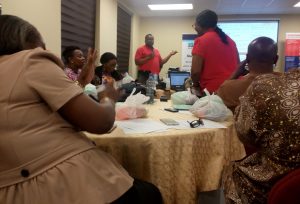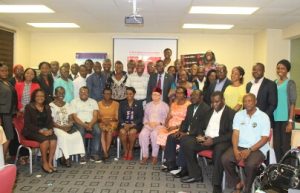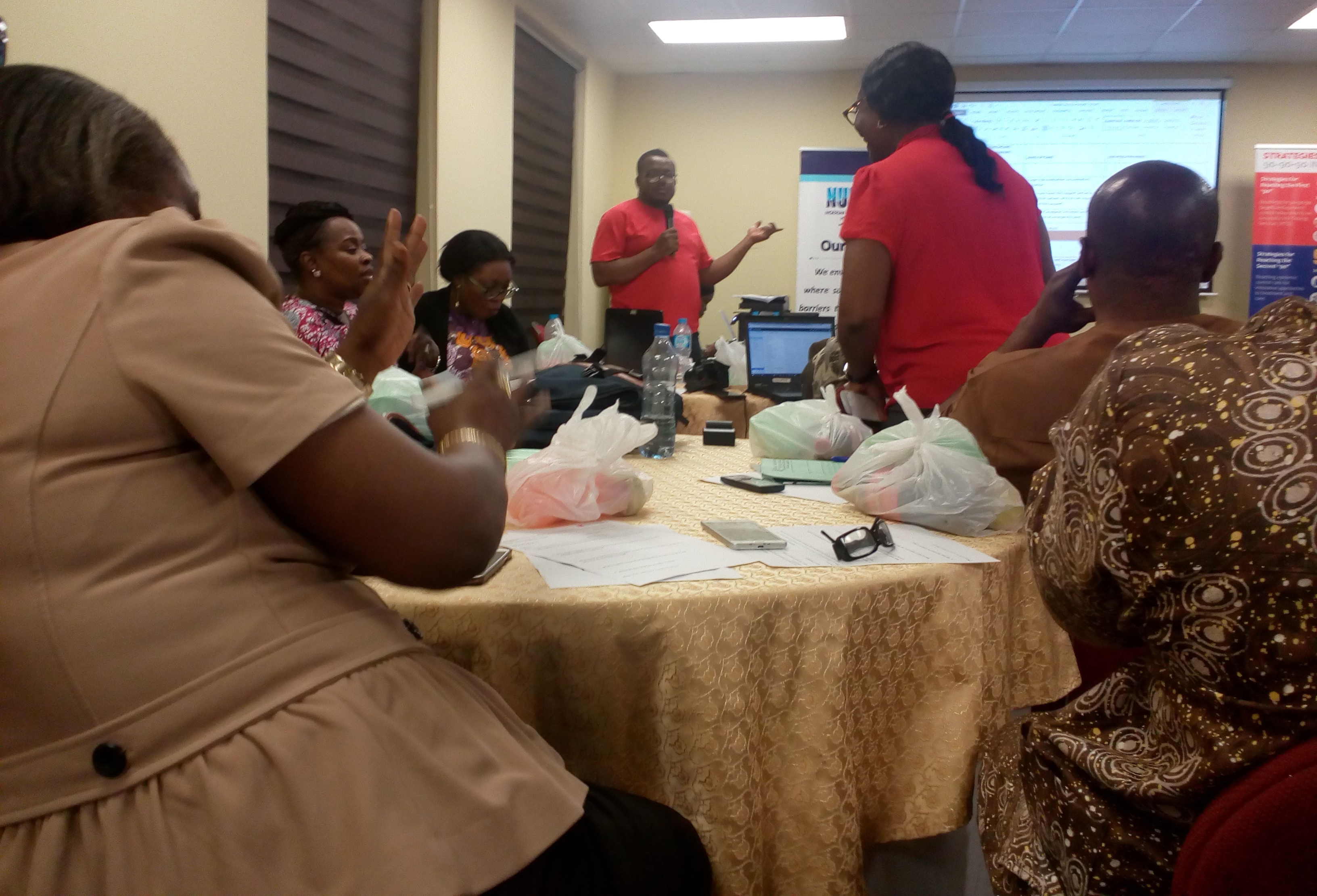Lagos moves to domesticate Task-Shifting, Sharing of health services
• Health professionals work together to draft policy

In its usual quest for excellence and efficiency in its health system, the Lagos State Ministry of Health with its consulting team of partners; Save the Children, FHI360, and the Nigerian Urban Reproductive Health Initiative, (NURH), together with representatives of all cadres of health professionals in the state, ended a three-day workshop on Friday July 7, aimed at developing a policy towards domesticating the Task-Shifting and Task-Sharing Policy for the State.
This is in accordance with the Task-Shifting and Task-Sharing Policy for essential health care services in Nigeria as approved by the Federal Ministry of Health in October 2014.
When fully developed, adopted and implemented, the policy will help reduce one of the major barriers of access to essential health care services in Nigeria: shortage and inequitable distribution of needed health workforce to deliver services where they are most needed.
Speaking to NHO, a ministry official who spoke under the condition of anonymity, described the workshop as an epoch making event, saying this is the first time the government has been able to gather all cadres of health professionals in the state to sit down and talk about the services or what they are willing to give over to another cadre to help them, all in a bid to ensure there is enough health care services for the people.
“As you know, we have human resource shortage; we are a population of 23 million and still counting, while there are so many workers that you can employ, you can never have enough. So task-shifting and sharing is an innovative way to address that shortage in which people that normally handle a task, once there is a shortage, will identify another cadre they can shift that task to so that when they are not available to do it, those people can take over.
“Of course there will be terms and conditions that will be applied, there will be standard operating procedures to say this is how we must do it. In fact, I am the happiest person today, we have been able to bring everybody together, and we have decided that this is what we want to do as regards essential health services in Lagos state,” she said.
Explaining the fear that this policy might result in government not wanting to employ medical professionals thereby using the people already on ground, she said: “It is not every single task that you are task-shifting, there would still be the core things that a professional would do in any cadre that you cannot by virtue of your training task-shift to somebody else. But there are those that are peripheral that you can allow somebody else to do while you face the more important things with regards to your own profession. That is what this is all about,” she explained.

In agreement with this view, Dr Edun Omasanjuwa, State Team Leader, NURHI, one of the consulting partners, explained that the policy would not also result to laxity in the workforce because “the idea is that the health workforce as it is, is over burdened. So the idea is to be able to share your task with a different cadre that could be less busy at that time. So what it does create instead of laxity is an efficiency in the system whereby services are been rendered on time, safe and effective.
“This will go a long way in increasing access to essential services to large amount of people in such a way that people who ordinarily do not have the skills to provide some levels of essential services will now be trained by qualified institutions and qualified providers to now provide this services and they will be properly quided, supervised and monitored to ensure that they provide this services according to the guidelines that have been provided.
“For example, in order to increase access to the family planning services, what this policy will do is that those who have been adequately trained and certified will now be able to provide family planning services in the community. So by doing so you would have increased access to women and men to family planning services that ordinarily they wouldn’t have gotten if they didn’t come to the facility.” He said.
Similarly, Dr. Opeyemi Odedere, maternal, newborn and child health (MNCH) Advisor of Save the Children Lagos, described the workshop as “wonderful, interactive and successful.”
“We had a lot of people here today, a lot of professionals from different areas of health. We have nurses, doctors, community health workers, laboratory specialists, pharmacists and pharmacy technicians; everybody is here for the same purpose: to achieve the development of task-shifting and task-sharing policy.
“We all know that we have a national document already, the national task-shifting and task-sharing policy, all we are here to do is to see how we can adapt into Lagos State peculiarities and come up with Lagos task- shifting and task-sharing policy document.
“Besides this, because of the spirit of task-shifting and task-sharing policy, the curriculum used by some certain cadres for example, the Community Health Extension Workers in schools has also been reviewed at the national level and which has also been introduced at the governing council of school of Health Technologies, that is the school that trains community health workers. This means that with the curriculum that has been reviewed, it means that the content of the curriculum will change which means that tasks that we are shifting now would have moved into their curriculum,” Dr. Odedere said.
He explained that Save the Children is particularly interested in this because this is what the organisation has been doing in its capacity building project.
“What are doing here is actually creating an enabling policy environment that will allow these health workers to thrive in the health facilities. So it is a project that the Save the Children is implementing right now which is called Health Workers Capacity Building,” Dr. Odedere said.
Also speaking to NHO, on the impact of fhi360, Ezeh Uche, organizational development advisor of fhi360/Deloitte Consulting LLG said fhi360 is a lead partner in charge of health system strengthening aspect of the project.
“The programme that just held is called the domestication of national task shifting and task sharing policy in Lagos state, like I told you we work in the health system strengthening. Health system strengthening includes capacity building, policy formulation, creating enabling environment for sustainability and ownership of the health response.
“We work in the area of HIV/AIDS epidemic control, as part of what we do, the task- shifting and task- sharing policy is very important and key to delivering or to the HIV epidemics control in the state because as a result of the shortage of manpower in the delivery of some services, some results are very difficult to get because some cadre of health professional are restricted from carrying out some of those activities. So, with this policy formulated, some of those tasks can be shifted to some professionals with less qualification who are more readily available to carry out these activities.
Mr. Uche however, wants the state government to ensure that the benefits of task-shifting and task-sharing are fully realized as a result of this exercise so that it won’t be effort in futility.
“The most important thing is for the end beneficiary who is the clients, the citizens, to be able to get the benefits because the whole essence is to ensure universal health coverage,” he said.

